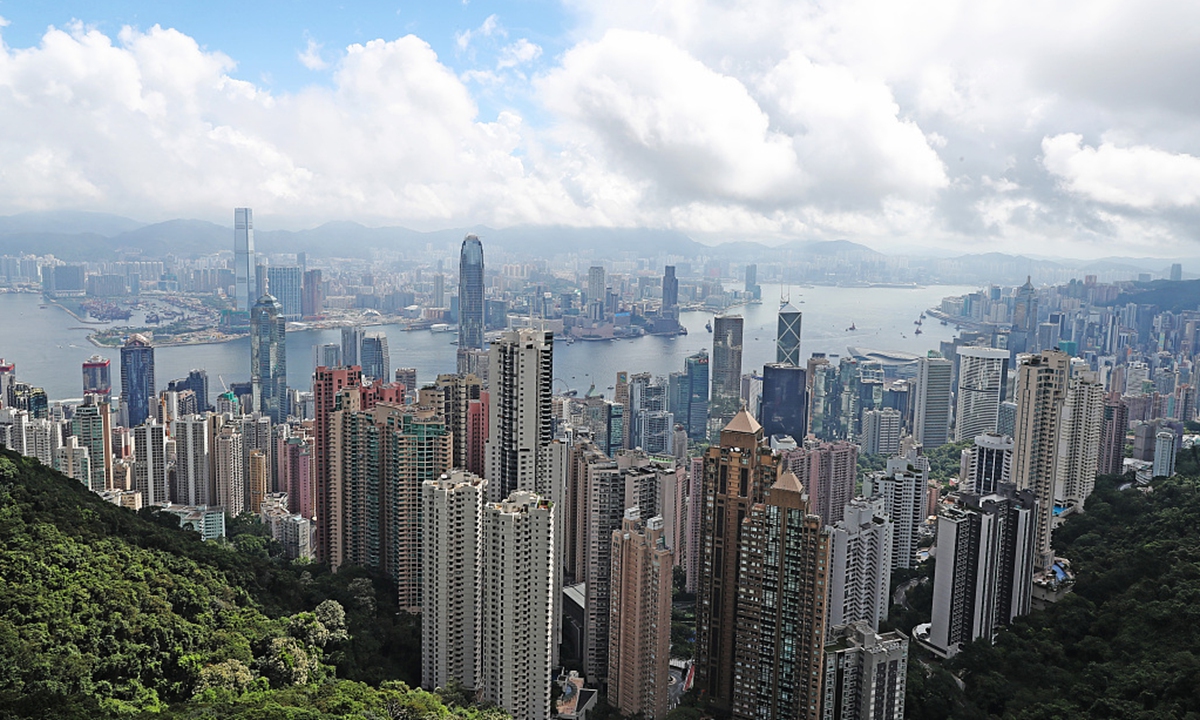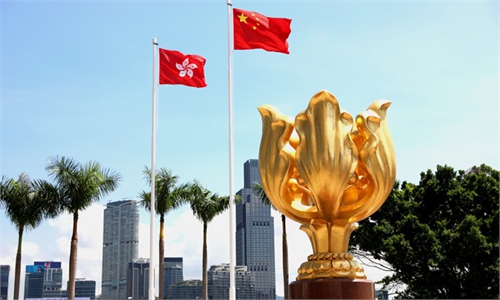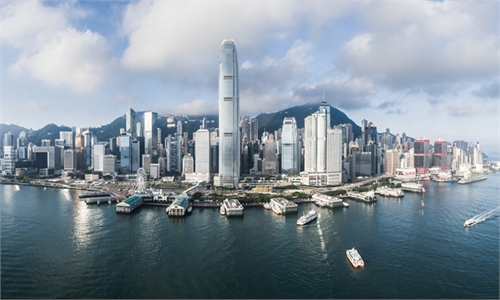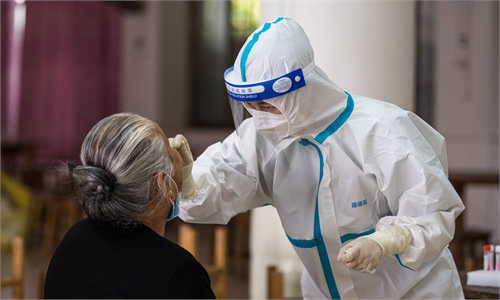GT Exclusive: No mass exodus of investment from Hong Kong because of zero COVID-19 policy: spokesperson

Hong Kong Victoria Harbor Photo: VCG
A spokesperson for the Hong Kong Special Administrative Region (HKSAR) on Thursday pushed back against unfounded criticism and vicious slander against the business environment in the city and the anti-COVID-19 policies both in the HKSAR and the Chinese mainland, saying there hasn't been any mass exodus of investment from the city as claimed by some foreign media reports.In what appears to be a concerted smearing campaign against both the HKSAR and the mainland, several foreign media outlets have recently claimed that the HKSAR's and the mainland's zero-tolerance policies toward local COVID-19 cases have prompted foreign investment, notably US and Japanese companies with operations in Hong Kong, to exit from the city.
Many foreign media outlets and officials have persistently and repeatedly predicted that foreign businesses would leave the HKSAR, whenever the HKSAR government or the central government takes concrete measures to ensure stability, security and prosperity in the city, experts noted, adding that such claims have no merits whatsoever and only further expose their bias.
In an exclusive response to the Global Times' inquiry about the possible exit of foreign businesses from the city, a spokesperson for the HKSAR said that "Hong Kong continues to be a very attractive place for businesses to set up and expand their operations, especially in relation to the emerging opportunities in the Guangdong-Hong Kong-Macao Greater Bay Area - a market of 86 million people."
The findings of the latest surveys speak volumes for the city's role as a magnet for foreign investors.
According to the World Investment Report 2021 released by the UN Conference on Trade and Development, the HKSAR was the third-largest foreign direct investment recipient in the world in 2020.
The number of overseas and Chinese mainland companies in the HKSAR has risen to a record high of 9,049, according to the 2021 Annual Survey of Companies in Hong Kong with Parent Companies Located outside Hong Kong, jointly conducted by Invest Hong Kong and the city's Census and Statistics Department.
Another survey also found that the number of start-ups in Hong Kong increased to 3,755 in 2021, setting a new record, the spokesperson revealed, stressing that "this demonstrates fully that the HKSAR's business environment remains favorable."
Over the past year or so, the HKSAR's anti-epidemic strategy and objective has been premised on the overall interests of the local community, taking into account the aspirations of the public and the impact on the economy, according to the spokesperson, noting that since May this year, Hong Kong has not recorded any local cases for the vast majority of the time and has basically realized the target of "zero infections."
"We understand that the impact of the pandemic, particularly the inability to resume cross-boundary travel between Hong Kong and the mainland, affected both the general public and the business sector," the spokesperson noted, disclosing that the HKSAR is striving for the early resumption of quarantine-free travel from the HKSAR to the mainland, which will be beneficial for the business community.
"Capital flows in Hong Kong have attracted much attention. However, there is no logical causal relationship between the zero-COVID policy and the flow of funds in Hong Kong," Ye Tan, a financial commentator who follows the Hong Kong market, told the Global Times on Thursday.
Ye further added that attacking other governments' public policy is unnecessary and that capital flow in any city depends on the local economic, social, and cultural environment and its prospects.
Hong Kong's real GDP grew by 5.4 percent in the third quarter, following a 7.6 percent expansion in the prior quarter, with the continuous expansion attributed to sustained solid growth in both domestic and external demand, per official advance estimates on Monday.
As the government spokesperson pledged, it remains the HKSAR's objective to maintain a zero-COVID policy in the city for the community's safety and overall interests, as well as to guard against the import of cases as the southern gate of entry into the mainland.
The HKSAR government will continue to closely monitor the epidemic situation in different places, and will consider a basket of factors under the risk-based principle, "including public health considerations such as the epidemic situation, testing rate, vaccination rate, volume of travelers and actual imported cases in relation to specific places… as well as other local socioeconomic factors, to adjust the boarding, quarantine and testing requirements for persons arriving at Hong Kong from relevant places based on risk levels as the situation warrants," the spokesperson said.




